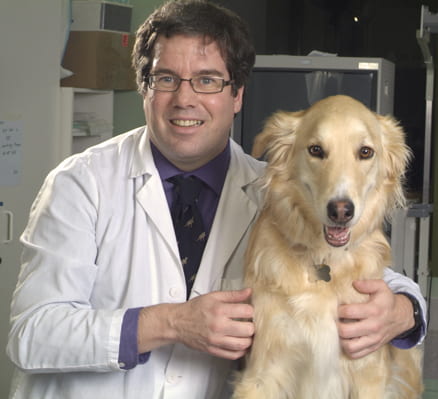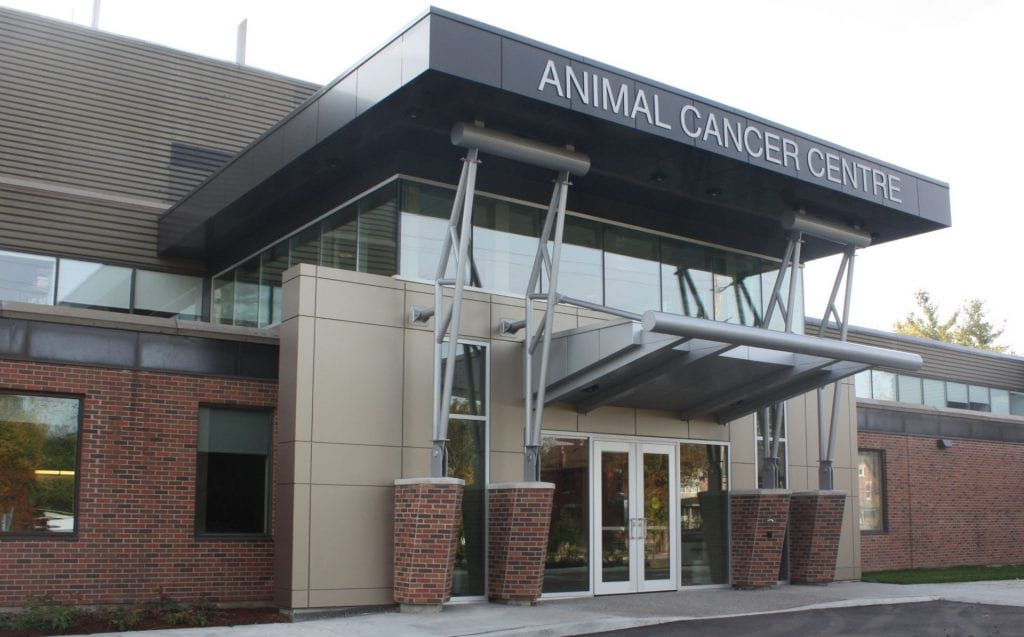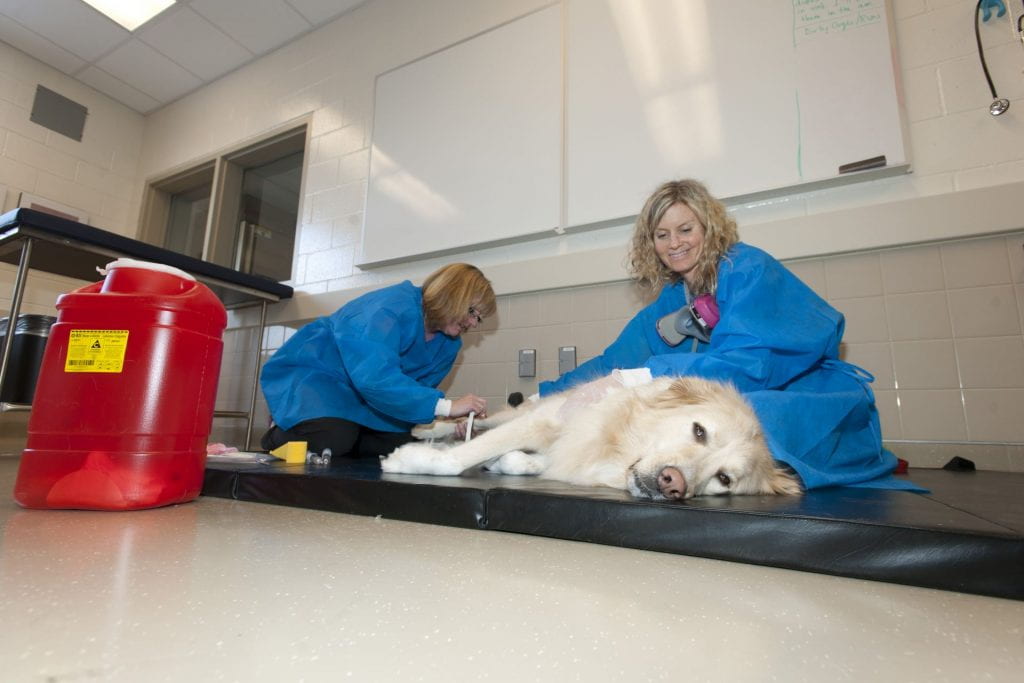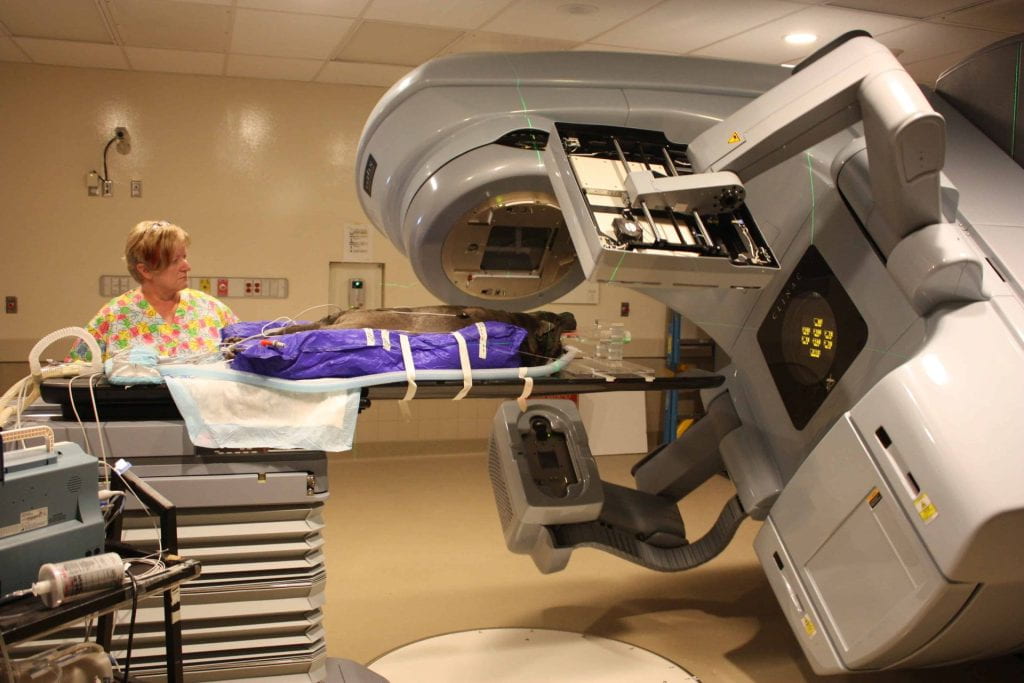Dr. Paul Woods

“Osteosarcoma looks very similar in dogs and people so if we can show improvement in care in one species, then that may translate to help the other species as well.”
– Dr. Woods
Clinical trials are underway for bone cancer treatment in large breed dogs that has a human equivalent in young children.
Researchers at the Ontario Veterinary College (OVC) are working with 10 American veterinary colleges as members of the National Institutes of Health (NIH) comparative oncology (cancer) trials consortium. The group was created to conduct clinical trials in companion dogs who naturally develop osteosarcoma, such as this trial for a novel immune therapy.
Hoping to translate the study results to human patients with osteosarcoma, this research underscores a basic tenet of One Health: that is, the relationship between human and animal health, and their shared environment.
“Osteosarcoma looks very similar in dogs and people,” says Department of Clinical Studies Dr. Paul Woods, a veterinary medical oncologist and former founding co-director of the Institute for Comparative Cancer Investigation at the University of Guelph. “If we can show improvement in care in one species, then that may translate to help the other species as well.”
Osteosarcoma commonly affects limbs, such as legs, in dogs and youth. Treatment is similar – with surgery, chemotherapy, and occasionally radiation. But while such treatment usually alleviates the pain caused by the cancer, unfortunately it often doesn’t stop the spread, or metastasis, to other areas of the body. The individuals typically die because of metastasis to critical organs, such as the heart or lungs.
To address this problem, University of Pennsylvania researchers developed an attenuated bacteria vaccine. It uses genetically modified bacteria to train the immune system to recognize and attack a target (HER2/neu) that is often overexpressed in osteosarcoma. The rationale is that this could stop or delay metastasis.
The NIH is running a clinical trial of the vaccine at 11 veterinary colleges across North America. Eighty dogs afflicted with osteosarcoma have been recruited and administered the vaccine, in addition to standard of care (amputation and chemotherapy). The dogs are currently being monitored through routine physical exams and chest X-rays to determine if the vaccine is successfully extending their lifetime.
Woods says a fascinating aspect of this disease is its similarity across species, despite significant genetic diversity. Dogs that develop osteosarcomas span a variety of breeds such as Rottweilers, Golden Retrievers and Great Danes. Each breed is genetically diverse, and that diversity only increases across species, to humans.
“If you compared dog osteosarcoma tumours with human tumours, you wouldn’t be able to easily distinguish which species they came from,” says Woods.
Funding for this clinical trial is provided by the Morris Animal Foundation.
Learn more about Woods and the work of the Institute for Comparative Cancer Investigation here: https://icci.uoguelph.ca/
By Anna McMenemy






